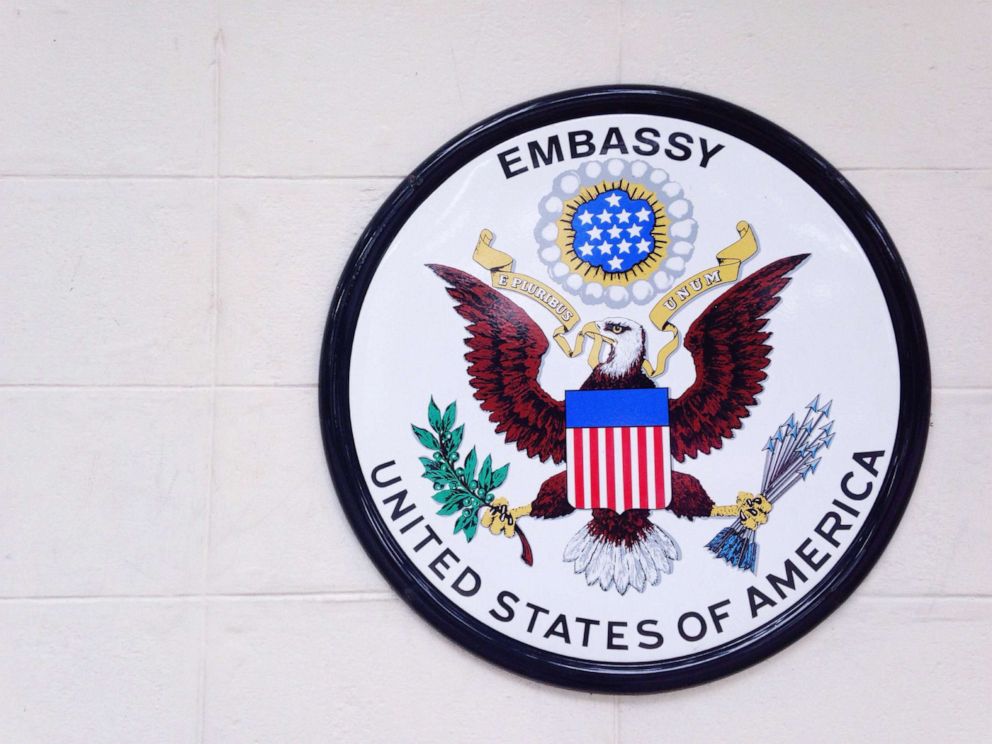Americans told 'do not travel' overseas by State Department amid coronavirus outbreak
This highest warning was issued by the department as thousands are stranded
The State Department is urging all Americans "do not travel" abroad because of the novel coronavirus pandemic and the severe travel restrictions or quarantines imposed by governments around the world.
In an unprecedented global health advisory, the department issued its highest-level alert, usually reserved for war zones or hot spots like Syria, North Korea or Somalia.
Tune into ABC at 1 p.m. ET and ABC News Live at 4 p.m. ET every weekday for special coverage of the novel coronavirus with the full ABC News team, including the latest news, context and analysis.
If commercial travel is still available in a given country, Americans are told to make arrangements to return to the U.S. immediately, "unless they are prepared to remain abroad for an indefinite period."
But it comes too late for thousands of Americans who have been left stranded while traveling overseas by borders that have been closed, commercial travel barred and quarantines instituted with short notice.

The U.S. government chartered five evacuation flights from Wuhan, China -- the original hotbed of the outbreak -- and two for Americans aboard the Diamond Princess cruise ship. But in the new advisory, the department reiterated what it has told Americans for weeks: "Have a travel plan that does not rely on the U.S. Government for assistance."
The new advisory offers no specific guidance for those cases currently stranded, just a warning that "travel plans may be severely disrupted, and you may be forced to remain outside of the United States for an indefinite timeframe."
The department will also only accept passport applications for "life-or-death emergencies" where someone intends to travel within 72 hours, it announced Thursday -- part of a severe constriction of services to keep the virus from spreading among consular staff.
One staffer at the U.S. embassy in Jamaica was confirmed to have the novel coronavirus, known as COVID-19, while several staffers at a consular office in Tel Aviv, Israel, have been placed in quarantine after an Israeli citizen visited the office and later tested positive.
In total, Secretary of State Mike Pompeo said Tuesday a small group of his department's staff have tested positive, saying he could "count them on one hand," although one additional official from the department's Consular Affairs office tested positive, an official said Thursday -- the first staffer in Washington confirmed to have the virus.
Before the passport policy change, embassies and consulates in dozens of countries had already halted public-facing services, such as visa processing, leaving only emergency American citizen services. U.S. personnel or family members overseas who are at a higher risk of death from the virus were also permitted to return to the U.S.
But with embassies operating at reduced staffing, many Americans stranded by local government restrictions have complained about a lack of communication or assistance.
Hundreds of Americans stranded in Morocco after the government shut down all travel in and out of the country earlier this week heard from the U.S. ambassador on Thursday for the first time. In a video message, Ambassador David Fischer, a former auto executive and major Republican donor, said the embassy and State Department are "exploring all options" to get Americans out, but offered no new details on how -- prompting angry replies online.
Art Goldberg, his wife Sarajane Johnson and their group of 12 American tourists, have been stuck, taking a bus from Marrakesh to Casablanca on Thursday, but still missing the last emergency flights arranged by the British government out of the country. After waiting for hours at the airport, only 59 of the 108 travelers with the tour group, Overseas Adventure Travel, got flights out.
"From all appearances, we agree that there seems to be no one from the U.S. consulate or embassy who cares about these U.S. citizens trying to get home," Goldberg told ABC News on Thursday, while praising OAT's staff and saying they will attempt to board a flight at the airport again Friday.
President Donald Trump appeared to blame U.S. citizens overseas for their predicament. During a briefing at the White House Thursday, he said that the U.S. military would assist Americans in Peru, without saying how or why not in other countries.
"They got caught. They were late with their flights. We gave them a period of time. They didn't make it, but we're looking to get them out with military -- probably through the military," Trump told ABC News Chief White House Correspondent Jonathan Karl.
The Pentagon's Southern Command referred questions about any military role to the White House.
While the U.S. has so far not arranged evacuation flights for citizens overseas, the Peace Corps is helping plan at least one after shuttering its programs worldwide and ordering all volunteers back to the U.S. The U.S. embassy in Moldova said any Americans in the Eastern European country could purchase a seat on the plane, and other similar arrangements may be available soon in some countries with large Peace Corps programs.
What to know about coronavirus:
- How it started and how to protect yourself: coronavirus explained
- What to do if you have symptoms: coronavirus symptoms
- Tracking the spread in the US and Worldwide: coronavirus map




